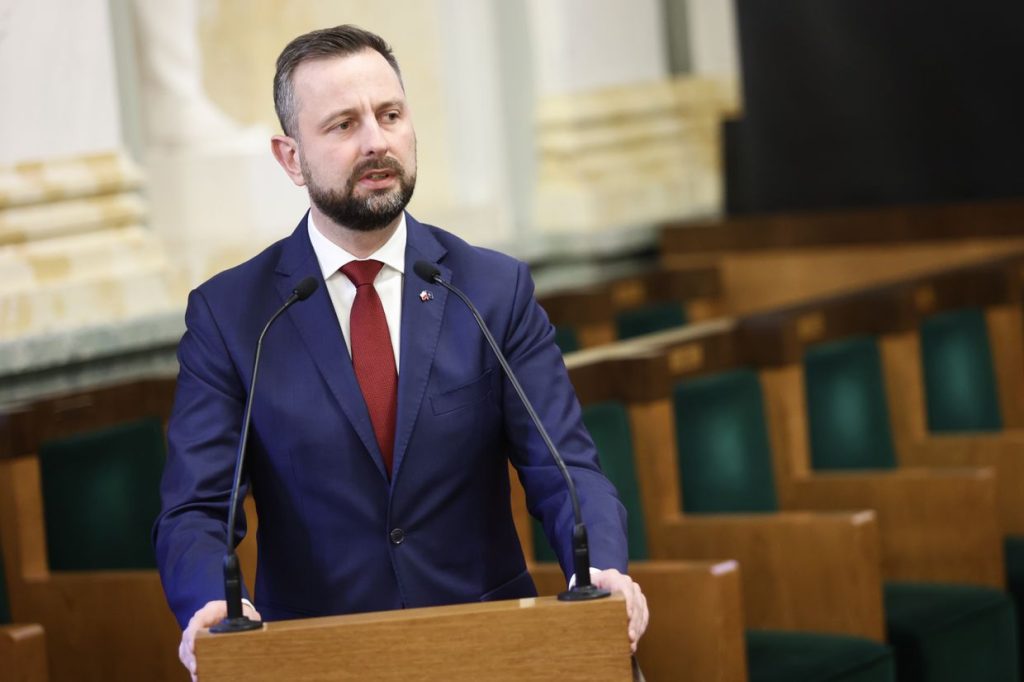The Polish Defence Minister recently announced that Poland will assist Ukraine in repatriating its military-aged men following changes to passport and consular service laws for Ukrainian men living abroad. Ukraine recently implemented a ban on sending identification documents and passports to men aged 18 to 60 living abroad, coinciding with a suspension of new applications for consular support for military-age men abroad. Ukrainian men in this age group can now only obtain passports at migration service offices in Ukraine, with the service of sending passports abroad no longer available. These measures are intended to ensure fair treatment of men of conscription age in Ukraine and abroad, especially in light of the ongoing conflict in the country.
Poland, which hosts around 1 million Ukrainian refugees, has offered to help Ukraine identify refugees living in Poland who are of military age and under obligation to serve. The Polish Defence Minister emphasized that the level of assistance provided by Poland depends on the Ukrainian government’s willingness to cooperate. The new measures implemented by Ukraine aim to address issues of fairness and loyalty among men of conscription age, as those who leave the country during wartime and then seek services upon return may be seen as not supporting the nation’s survival. Ukrainian Foreign Minister Dmytro Kuleba stressed the importance of maintaining a strong military force during the ongoing conflict in Ukraine.
Despite restrictions on Ukrainian men aged 18 to 60 leaving the country during the war, reports estimate that around 650,000 military-age Ukrainian men have fled to the EU since the start of the invasion. Ukraine passed a controversial bill on mobilization in response to a critical manpower shortage, as political and military leaders work to increase mobilization efforts in 2024. The bill is crucial in ensuring that Ukraine has the necessary manpower to defend itself during the conflict. These developments underscore the challenges faced by Ukraine in maintaining a strong military force in the midst of ongoing conflict and the impact it has on the nation’s ability to defend itself effectively.
The Ukrainian government’s implementation of new laws and restrictions on passport and consular services for military-age men reflects the country’s efforts to strengthen its military capabilities and prioritize its national security during a time of conflict. The measures aimed at preventing men of conscription age from leaving the country and ensuring fair treatment for those serving in the military highlight the importance of loyalty and dedication to Ukraine’s defense. The support provided by countries like Poland in assisting with repatriation efforts and identifying potential soldiers among Ukrainian refugees demonstrates international cooperation in addressing the challenges faced by Ukraine in maintaining a strong military force amidst ongoing conflict.
As Ukraine continues to navigate the complexities of the conflict and mobilization efforts, the cooperation of countries like Poland and the implementation of new laws and measures within Ukraine are critical in ensuring the nation’s ability to defend itself effectively. The willingness of countries to support Ukraine in its efforts to repatriate military-aged men and strengthen its military forces underscores the importance of international solidarity in times of crisis. The ongoing conflict in Ukraine serves as a reminder of the challenges faced by nations in defending their sovereignty and security, and the importance of collective efforts to address these challenges and support those in need.


